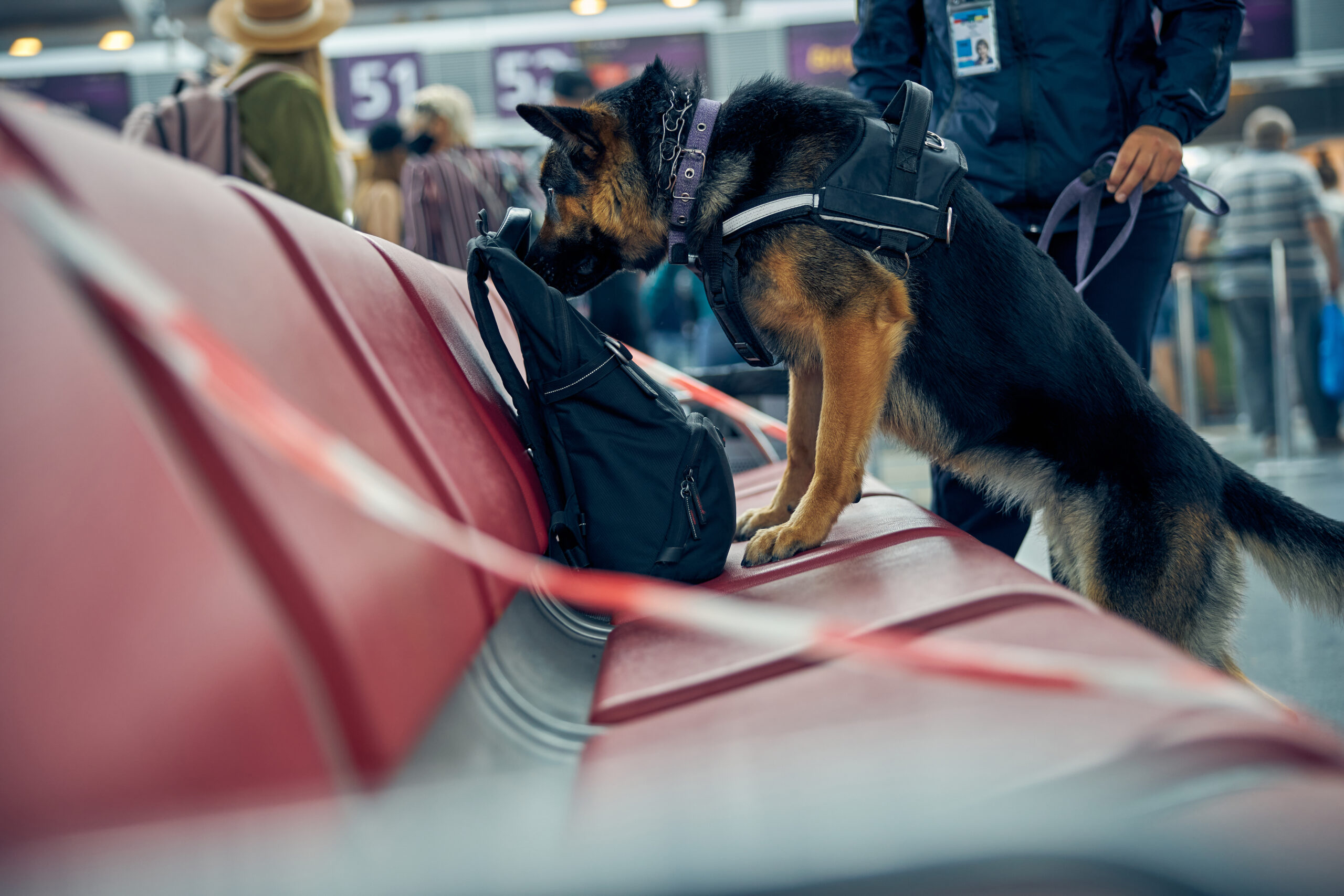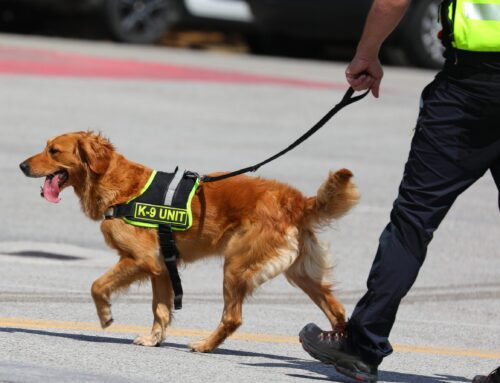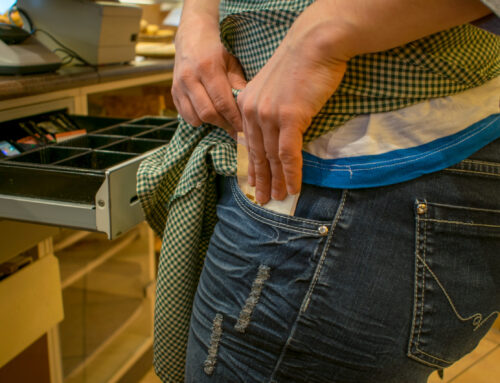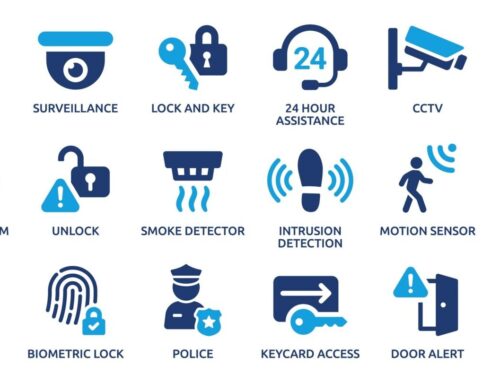It is common to see security dogs at airports and at high profile events, often stood passively and discreetly observing, and to the side of the main proceedings. This presence can be as a deterrent to potential disorder, or to react to outbreaks of disorder, but in many situations this is a direct reaction to the potential threat of a terrorist attack.
Whether a routine precaution or in response to a received threat, teams of detection dogs and their handlers are a regular presence in specific situations where a bomb threat could result in an explosion. There was a recent incident at Gatwick Airport which highlighted this. At the end of November 2024, the South Terminal of Gatwick Airport was evacuated when a suspicious package was detected. Many flights were delayed and 40 flights were cancelled as an explosive ordnance disposal team “made the package safe”. For security reasons, no further details of the threat have been released, but detection dogs did their job and a possible terrorist threat was aborted.
Why are detection dogs an effective means of identifying explosives?
Dogs have around 100 million sensory receptor sites in their nasal cavities, while humans have only around six million. This means that dogs have a sense of smell that is between 1000 to 10,000 times more sensitive than a human’s. This sensitivity differs according to the age and breed of dog, which is why specific breeds – such as Bloodhounds, Labradors and German Shepherds – are more suitable for being trained as detection dogs, up to a certain age.
In addition to the sensitivities of a dog’s sense of smell, security dogs can also be trained to identify specific smells and to alert their handler to this. So, in terms of detecting explosive devices, explosive residue or the post-blast evidence of explosives, a detection dog can:
- Identify where explosives are present now and if they have historically been on a person or in a specific environment.
- Identify a type of explosive amongst several other sources of benign odour.
- Identify very low levels of a specific explosive or residue.
How are detection dogs trained to identify explosives?
Dogs are naturally obedient and athletic in most cases, but they can be trained to be more so, and certain breeds are also more intelligent and more motivated. That means that these breeds of dog can be trained in the detection of specific substances and the discipline required to communicate this. In their training, dogs will be introduced to a specific explosive smell and will receive a positive reinforcement treat each time they detect it. The training also involves the handler, who needs to thoroughly understand the dog’s nature and behaviour so that they eventually work as a team. This means the handler needs to know when the dog has given a positive response and action is needed, and they should also know when a response to a similar or different smell does not indicate that an explosive or explosive residue is present.
Fully trained detection dog handling teams will be able to identify explosives or evidence of past explosives:
- In vehicles
- In bulk loads
- On people
- In large, open and busy areas
This makes dogs more effective than humans in detecting explosives in many different scenarios and environments where it would take much longer for a human. Added to this, a dog can combine detection with rapid pursuit and, if necessary, apprehension of a suspect. Essentially, a detection dog is versatile, mobile, reactive and very fast.
Professional and licenced detection dog teams from React K9
You will see detection dog teams in many public places with a specific remit to react to terrorist threats and protect public safety, as we saw with the recent incident at Gatwick Airport.
If you need detection dogs as part of a canine security team then you can contact React K9 today. Our canine security dogs are trained to detect explosives, as well as firearms and other types of contraband, such as drugs. If you have a need for this service then you can rely on our NASDU trained and SIA-licenced canine security teams, so contact React K9 today.




